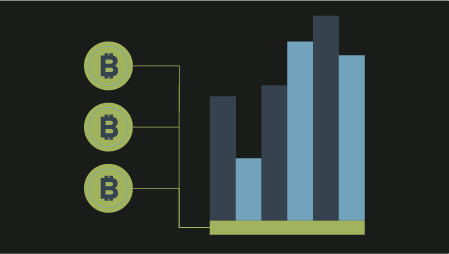Looking to hire blockchain experts for your smart contract development or smart contract audit? Experfy incubated in the Harvard Innovation Lab, provides comprehensive smart contract audit through rigorous independent review by our in-house team of auditors. If you need a smart contract developed from scratch, we provide Solidity development services as well.
Are you ready to delegate making your business and legal agreements to smart contracts? You probably do, but may have some concerns regarding it. Is it safe, feasible, and effective?
We’ve talked with N-iX smart contract developers to shed some light on using Ethereum smart contract development for real-life business cases. We are going to focus on its pros and cons, areas of application, and ways of implementation.
What is a smart contract ?
A smart contract is a digital analogy of a traditional legal contract. In simple terms, it is a computer program that automatically enforces the terms of a multiparty agreement. If the conditions are not met, the contract gets revoked and the asset exchange is thwarted. A smart contract has a few advantages over a typical one.
First, it is executed automatically, and once you wrote and tested a smart contract, you may run it as many times as you need.
Second, a smart contract is stored inside a blockchain, and thus – it is distributed across all participants of an agreement, and can’t be changed. As a result, all the rules are transparent for all the members of a transaction, and it is impossible to fool the system.
Third, you don’t need a third party to guarantee a transaction. The smart code does the job.

What are the features of Ethereum smart contract development?
- According to etherscan, 49% of all the transactions with the Ether cryptocurrency are executed within smart contracts.
- Ethereum has two types of accounts: a user account, and a smart contract account. A user account enables you to transfer and receive ether, whereas a smart contract account lets you create and participate in smart contracts. Both simple user transactions and smart contracts are recorded and stored in the Ethereum blockchain. They can’t be changed and can be traced back.
- At the heart of the Ethereum blockchain is the Ethereum Virtual Machine. It can be thought of as a large decentralized computer that contains millions of those accounts that can execute and store transactions and smart contracts.
- Solidity is the key language for writing smart contracts on Ethereum.
- Solidity is Turing-complete, which means you can solve any reasonable computational problem with it. That’s why Ethereum is one of the most popular platforms for smart contract development.
- A consensus ( a means of validating a specific transaction) is reached through mining and Proof of Work, at the ledger level. Thus the consensus is shared among all the participants in the ledger.
- The contracts are validated by computers that are called miners. We pay these miners gas. This is the unit by which the degree of difficulty of computational efforts is calculated, and which defines the cost of running a contract. Different contract’s operations might require a different amount of gas which then is transferred in ether. This may be regarded as a fee you pay for the digital guarantee that your transaction is valid and can’t be tampered with.
- Proof of Stake, another type of consensus, is going to be introduced, yet the date is still unknown. To deploy and validate your smart contracts, you can use either public Ethereum blockchain or a semi-private one. In a semi-private one, you choose the number of transaction and mining nodes, and the details of the transaction will be available only to the members of this consortium blokchain.

Does your business case call for smart contract development?
Smart contracts can be used across many industries, for instance – in insurance (AXA Fizzy), crowdfunding (for example, WeiFund app), IoT, real estate, banking, international trade, and many more. The technology will eventually come in place of notaries, lawyers, and legal advisors.
Thus, various businesses will have to adjust to smart contract development. Or, become the laggards.
Is smart contract development legally binding?
At present, smart contract compliance is based on solid code and internal trust.
However, regulation and legal compliance still remain some of the hottest topics in smart contract development. As a result, the 14 law firms and academic institutions will start an alliance with some of the world’s market players including some of those listed below.(chart) At present, there are over 150 joinees of the collaboration group.
Along with the renowned academic institutions, the law firms that have partnered include Cooley, Debevoise & Plimpton, Goodwin, Hogan Lovells, Holland & Knight, Jones Day, Latham & Watkins, Morrison & Foerster, Perkins Coie and Shearman & Sterling.
How to build smart contracts with Ethereum?
First. You need to set up Ethereum blockchain development environment
To do this, you can go in two different ways:
- Do it from scratch.
- Use Ethereum Blockchain as a service (that includes developer environment and Ethereum blockchain environment).
To quickly validate an idea, many companies choose Ethereum blockchain as a service (e.g., Azure). This way your development team can have a plug-and-play cloud-based blockchain developer environment. It contains Ether.Camp – an integrated developer environment, and BlockApps – a private, semi-private Ethereum blockchain environment.
Second. Writing automated unit tests is a crucial part of the process.
During and after your contract is built, testing is an essential part of the process to make sure that there are no defects. As soon as it is deployed and stored in the blockchain, it can’t be changed or revoked. In fact, researchers from Singapore and the UK revealed that there are 34,200 smart contracts that are vulnerable to hacker attacks as they were not tested well enough.
Third. Writing and deploying smart contracts.
To write smart contracts, you need to have a Solidity developer. The developer writes a computer program that is automatically executed when specific conditions are met. Here is a picture to illustrate this:
However, there are also some challenges associated with Ethereum smart contract development.
Scaling networks and deploying blockchain applications is a major hurdle in enterprise blockchain adoption. Another complex task is to find qualified Solidity developers.
Wrap-up
Smart contract development offers numerous benefits as it is secure, fast, automated, and irreversible. Ethereum is one of the most popular platforms for smart contract development as it enables to solve almost any computational task. Thus many businesses across a variety of industries hire Solidity developers to build their smart contracts.



